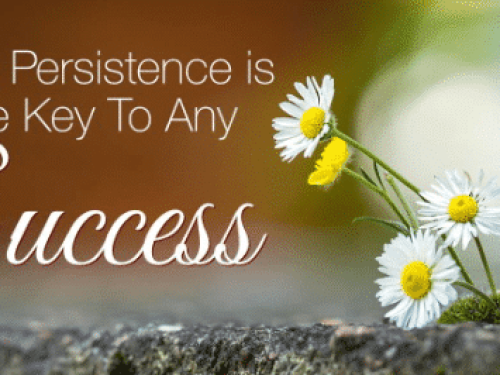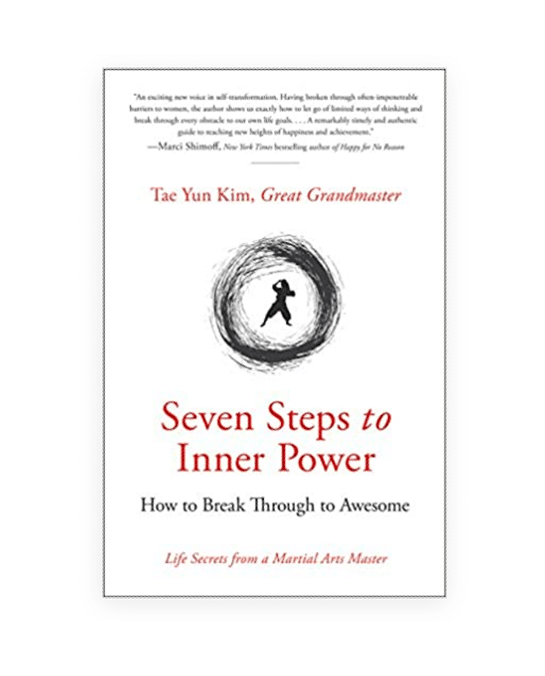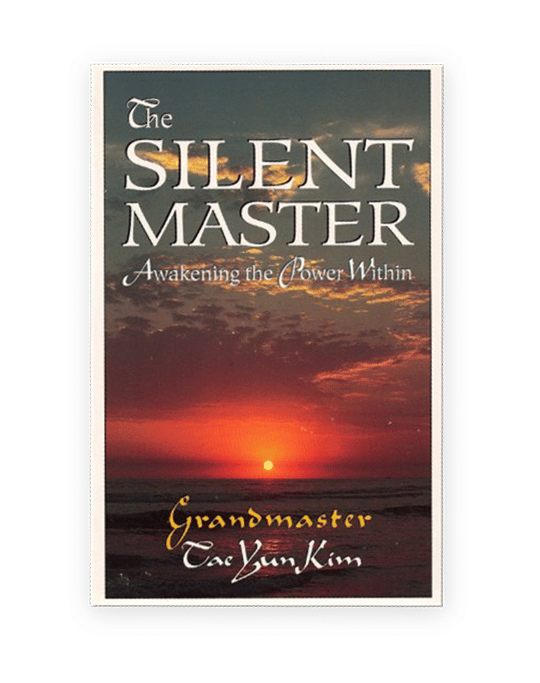The minutes ticked on as I sat outside of the principal’s office, waiting for someone to ask me why I was there. I was prepared for the question; I had, in fact, placed a bookmark into my worn Korean-English dictionary and marked the page where I’d written my answer in careful letters.
Hello, my name is Tae Yun Kim. I want to teach your students martial arts.
But no one had asked. Every afternoon for the last several weeks, I had taken a seat and waited for an invitation to speak, to no avail. At just over twenty, I was tiny and thin — at a glance, I almost looked like one of the students walking through the schools’ halls. But aside from a few odd glances, no one spoke to me. Yet, day in and out, I returned with my dictionary in hand, preparing for the day that someone would invite me inside.
It took a month. Finally, a curious administrator asked me what I was doing, and I finally had a chance to explain.
The principal was skeptical, at first. He told me that the school couldn’t pay me, that they didn’t want students to hurt themselves, that there was no martial arts course in place.
“That’s okay,” I told him, “I’ll volunteer, and martial arts will teach your students discipline.”
After some time, he agreed.
Persistence, I’ve learned, is often the key to success. After the first few days of waiting, some might have given up or assumed the answer was no — but because I committed myself, I was able to achieve both acceptance and opportunities beyond measure.
 Having the chance to teach brought me joy, because all I wanted to do was share my skills in martial arts. Back then, I was barely into my twenties and had just made the journey from my village in rural Korea to Vermont. Teaching was my dream — and I had struggled for years to study martial arts, facing abuse in a profoundly repressive patriarchal culture. I’d become Korea’s very first female grandmaster but was rejected as a teacher because of my gender. I wanted to teach, as I had been taught, and help others break free of their fears and circumstances — I just needed the chance.
That day, in that office, was my chance. It’s been decades since that day, but I still remember it. Since then, I’ve moved on to establish my own school, hundreds of miles away. I’ve taught thousands of students, built a tech company, and risen far above where my elders thought I would — all because of persistence.
Here’s what I’ve learned over the years.
If You Don’t Ask, You Guarantee Rejection
Many people abide by unnecessarily strict rules, so boxed in by their fears of seeming impolite or overly forward that they wall themselves off from opportunities. Another person might have been intimidated or embarrassed by the idea of sitting outside of a principal’s office for a month — but taking a risk on that embarrassment helped me make an enormous step forward in my career. I don’t regret it, and I wouldn’t even if the answer was a firm rejection.
Having the chance to teach brought me joy, because all I wanted to do was share my skills in martial arts. Back then, I was barely into my twenties and had just made the journey from my village in rural Korea to Vermont. Teaching was my dream — and I had struggled for years to study martial arts, facing abuse in a profoundly repressive patriarchal culture. I’d become Korea’s very first female grandmaster but was rejected as a teacher because of my gender. I wanted to teach, as I had been taught, and help others break free of their fears and circumstances — I just needed the chance.
That day, in that office, was my chance. It’s been decades since that day, but I still remember it. Since then, I’ve moved on to establish my own school, hundreds of miles away. I’ve taught thousands of students, built a tech company, and risen far above where my elders thought I would — all because of persistence.
Here’s what I’ve learned over the years.
If You Don’t Ask, You Guarantee Rejection
Many people abide by unnecessarily strict rules, so boxed in by their fears of seeming impolite or overly forward that they wall themselves off from opportunities. Another person might have been intimidated or embarrassed by the idea of sitting outside of a principal’s office for a month — but taking a risk on that embarrassment helped me make an enormous step forward in my career. I don’t regret it, and I wouldn’t even if the answer was a firm rejection.
 You are only ever guaranteed to fail if you refuse to try in the first place. The worst that someone can say when you pursue an opportunity is “no” — and even then, you may be able to make connections or find information that will help you achieve your goals another way.
Don’t let fear keep you from pursuing your dreams.
Rejection Isn’t Always Permanent — Or Even Negative.
When I landed in Vermont, I had just $300 to my name and was living in a trailer park. There, it didn’t matter what I’d given to become a martial arts Grandmaster, or even that I was one. My only career option was to clean toilets for money. Some might have seen those circumstances as a low point, or become discouraged.
I’ll be honest — there were times that it was terrible. Some nights, I had little but bone broth to eat. But I viewed each hard night as a stepping stone for something greater. I was being paid to scrub toilets, which constituted a significant step up from doing it for free for family members. It was honorable work, and I knew that it would give me the financial platform I needed to move onto my next success.
Persistence doesn’t always mean reaching for your furthest goal after a few days — or even months — of effort. Instead, it means being thankful for small steps and maintaining a determined spirit against adversity.
Harsh Words Should Motivate, Not Deter, You
It wasn’t always easy being a Korean woman in 1960s America. Back in my village, I had been reviled for being female and uninterested in gender norms. In America, I was rejected for the color of my skin, my broken English, my poverty, and my gender. It was hard; I was constantly demeaned, faced slurs, and even risked physical abuse. When I finally scraped together the money to rent studio space for a martial arts school, arsonists burned it to the ground.
Each setback was demoralizing and frustrating; however, I knew that I had to reset my perspective. So, after someone demeaned me or my dreams, I would respond — “Okay, I see you. You motivate me. I will prove you wrong.”
And I did.
There are always going to be people who step on your dreams. You’ll hear it from your competitors, enemies, friends, family. Even well-meant advice can be hurtful. You can be put down, made to think that you won’t accomplish anything — but you need to bear through it. Let criticism inform and motivate your efforts, not crush them.
Persistence is key.
You are only ever guaranteed to fail if you refuse to try in the first place. The worst that someone can say when you pursue an opportunity is “no” — and even then, you may be able to make connections or find information that will help you achieve your goals another way.
Don’t let fear keep you from pursuing your dreams.
Rejection Isn’t Always Permanent — Or Even Negative.
When I landed in Vermont, I had just $300 to my name and was living in a trailer park. There, it didn’t matter what I’d given to become a martial arts Grandmaster, or even that I was one. My only career option was to clean toilets for money. Some might have seen those circumstances as a low point, or become discouraged.
I’ll be honest — there were times that it was terrible. Some nights, I had little but bone broth to eat. But I viewed each hard night as a stepping stone for something greater. I was being paid to scrub toilets, which constituted a significant step up from doing it for free for family members. It was honorable work, and I knew that it would give me the financial platform I needed to move onto my next success.
Persistence doesn’t always mean reaching for your furthest goal after a few days — or even months — of effort. Instead, it means being thankful for small steps and maintaining a determined spirit against adversity.
Harsh Words Should Motivate, Not Deter, You
It wasn’t always easy being a Korean woman in 1960s America. Back in my village, I had been reviled for being female and uninterested in gender norms. In America, I was rejected for the color of my skin, my broken English, my poverty, and my gender. It was hard; I was constantly demeaned, faced slurs, and even risked physical abuse. When I finally scraped together the money to rent studio space for a martial arts school, arsonists burned it to the ground.
Each setback was demoralizing and frustrating; however, I knew that I had to reset my perspective. So, after someone demeaned me or my dreams, I would respond — “Okay, I see you. You motivate me. I will prove you wrong.”
And I did.
There are always going to be people who step on your dreams. You’ll hear it from your competitors, enemies, friends, family. Even well-meant advice can be hurtful. You can be put down, made to think that you won’t accomplish anything — but you need to bear through it. Let criticism inform and motivate your efforts, not crush them.
Persistence is key.
 Having the chance to teach brought me joy, because all I wanted to do was share my skills in martial arts. Back then, I was barely into my twenties and had just made the journey from my village in rural Korea to Vermont. Teaching was my dream — and I had struggled for years to study martial arts, facing abuse in a profoundly repressive patriarchal culture. I’d become Korea’s very first female grandmaster but was rejected as a teacher because of my gender. I wanted to teach, as I had been taught, and help others break free of their fears and circumstances — I just needed the chance.
That day, in that office, was my chance. It’s been decades since that day, but I still remember it. Since then, I’ve moved on to establish my own school, hundreds of miles away. I’ve taught thousands of students, built a tech company, and risen far above where my elders thought I would — all because of persistence.
Here’s what I’ve learned over the years.
If You Don’t Ask, You Guarantee Rejection
Many people abide by unnecessarily strict rules, so boxed in by their fears of seeming impolite or overly forward that they wall themselves off from opportunities. Another person might have been intimidated or embarrassed by the idea of sitting outside of a principal’s office for a month — but taking a risk on that embarrassment helped me make an enormous step forward in my career. I don’t regret it, and I wouldn’t even if the answer was a firm rejection.
Having the chance to teach brought me joy, because all I wanted to do was share my skills in martial arts. Back then, I was barely into my twenties and had just made the journey from my village in rural Korea to Vermont. Teaching was my dream — and I had struggled for years to study martial arts, facing abuse in a profoundly repressive patriarchal culture. I’d become Korea’s very first female grandmaster but was rejected as a teacher because of my gender. I wanted to teach, as I had been taught, and help others break free of their fears and circumstances — I just needed the chance.
That day, in that office, was my chance. It’s been decades since that day, but I still remember it. Since then, I’ve moved on to establish my own school, hundreds of miles away. I’ve taught thousands of students, built a tech company, and risen far above where my elders thought I would — all because of persistence.
Here’s what I’ve learned over the years.
If You Don’t Ask, You Guarantee Rejection
Many people abide by unnecessarily strict rules, so boxed in by their fears of seeming impolite or overly forward that they wall themselves off from opportunities. Another person might have been intimidated or embarrassed by the idea of sitting outside of a principal’s office for a month — but taking a risk on that embarrassment helped me make an enormous step forward in my career. I don’t regret it, and I wouldn’t even if the answer was a firm rejection.
 You are only ever guaranteed to fail if you refuse to try in the first place. The worst that someone can say when you pursue an opportunity is “no” — and even then, you may be able to make connections or find information that will help you achieve your goals another way.
Don’t let fear keep you from pursuing your dreams.
Rejection Isn’t Always Permanent — Or Even Negative.
When I landed in Vermont, I had just $300 to my name and was living in a trailer park. There, it didn’t matter what I’d given to become a martial arts Grandmaster, or even that I was one. My only career option was to clean toilets for money. Some might have seen those circumstances as a low point, or become discouraged.
I’ll be honest — there were times that it was terrible. Some nights, I had little but bone broth to eat. But I viewed each hard night as a stepping stone for something greater. I was being paid to scrub toilets, which constituted a significant step up from doing it for free for family members. It was honorable work, and I knew that it would give me the financial platform I needed to move onto my next success.
Persistence doesn’t always mean reaching for your furthest goal after a few days — or even months — of effort. Instead, it means being thankful for small steps and maintaining a determined spirit against adversity.
Harsh Words Should Motivate, Not Deter, You
It wasn’t always easy being a Korean woman in 1960s America. Back in my village, I had been reviled for being female and uninterested in gender norms. In America, I was rejected for the color of my skin, my broken English, my poverty, and my gender. It was hard; I was constantly demeaned, faced slurs, and even risked physical abuse. When I finally scraped together the money to rent studio space for a martial arts school, arsonists burned it to the ground.
Each setback was demoralizing and frustrating; however, I knew that I had to reset my perspective. So, after someone demeaned me or my dreams, I would respond — “Okay, I see you. You motivate me. I will prove you wrong.”
And I did.
There are always going to be people who step on your dreams. You’ll hear it from your competitors, enemies, friends, family. Even well-meant advice can be hurtful. You can be put down, made to think that you won’t accomplish anything — but you need to bear through it. Let criticism inform and motivate your efforts, not crush them.
Persistence is key.
You are only ever guaranteed to fail if you refuse to try in the first place. The worst that someone can say when you pursue an opportunity is “no” — and even then, you may be able to make connections or find information that will help you achieve your goals another way.
Don’t let fear keep you from pursuing your dreams.
Rejection Isn’t Always Permanent — Or Even Negative.
When I landed in Vermont, I had just $300 to my name and was living in a trailer park. There, it didn’t matter what I’d given to become a martial arts Grandmaster, or even that I was one. My only career option was to clean toilets for money. Some might have seen those circumstances as a low point, or become discouraged.
I’ll be honest — there were times that it was terrible. Some nights, I had little but bone broth to eat. But I viewed each hard night as a stepping stone for something greater. I was being paid to scrub toilets, which constituted a significant step up from doing it for free for family members. It was honorable work, and I knew that it would give me the financial platform I needed to move onto my next success.
Persistence doesn’t always mean reaching for your furthest goal after a few days — or even months — of effort. Instead, it means being thankful for small steps and maintaining a determined spirit against adversity.
Harsh Words Should Motivate, Not Deter, You
It wasn’t always easy being a Korean woman in 1960s America. Back in my village, I had been reviled for being female and uninterested in gender norms. In America, I was rejected for the color of my skin, my broken English, my poverty, and my gender. It was hard; I was constantly demeaned, faced slurs, and even risked physical abuse. When I finally scraped together the money to rent studio space for a martial arts school, arsonists burned it to the ground.
Each setback was demoralizing and frustrating; however, I knew that I had to reset my perspective. So, after someone demeaned me or my dreams, I would respond — “Okay, I see you. You motivate me. I will prove you wrong.”
And I did.
There are always going to be people who step on your dreams. You’ll hear it from your competitors, enemies, friends, family. Even well-meant advice can be hurtful. You can be put down, made to think that you won’t accomplish anything — but you need to bear through it. Let criticism inform and motivate your efforts, not crush them.
Persistence is key.






